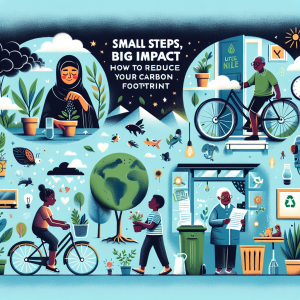The Role of Policy in Achieving Sustainable Goals
Policy plays a crucial role in achieving sustainable goals, acting as a framework to guide actions, allocate resources, and create accountability. Governments, businesses, and international organizations utilize policy to promote sustainable development, adhering to the United Nations’ Sustainable Development Goals (SDGs), which provide a universal call to action to end poverty, protect the planet, and ensure prosperity for all. To achieve these goals, it is essential to integrate social, economic, and environmental dimensions into comprehensive policy strategies.
Policymaking begins with identifying the challenges and potential solutions related to sustainability. This involves rigorous research and consultation with stakeholders, including governments, private sector leaders, non-governmental organizations, and civil society. The interdisciplinary nature of sustainable development means policies must address areas like climate change, clean energy, water and sanitation, poverty alleviation, health, education, and equality.
One key area where policy is indispensable is climate change. Climate policies are instrumental in setting carbon pricing, promoting renewable energy, and improving energy efficiency. Initiatives such as the Paris Agreement underscore the role of international cooperation in climate policy, setting internationally binding targets to reduce greenhouse gas emissions. National policies reflect these commitments, with countries developing specific strategies to transition to low-carbon economies by investing in sustainable infrastructure and adopting greener technologies.
Energy policy is another critical aspect where governments can drastically influence sustainability. Over-reliance on fossil fuels has led to significant environmental degradation and climate issues. By adopting policies that incentivize renewable energy sources like wind, solar, and hydroelectric power, countries can reduce their carbon footprint and foster energy independence. Renewable energy policies often include incentives like tax credits, subsidies for green companies, and mandates for utility companies to source a percentage of their power from renewable sources.
Water management policies are also significant in pursuing sustainability. With global demand for water resources increasing, the need for effective water management policies has become more pressing than ever. Policies focused on sustainable water management include regulations for water quality, conservation techniques, investments in water infrastructure, and education campaigns aimed at reducing water wastage. Raising awareness about water conservation and implementing strategies to manage this precious resource sustainably are vital for maintaining ecosystem balance and human health.
Social policies are equally important in the sustainable development agenda. Policies that address issues of poverty, education, and healthcare create a more equitable society. Poverty reduction policies may include social safety nets, job creation programs, and access to essential services. Enhancing education through equitable access to quality education can empower communities, reduce inequalities, and promote economic growth. Healthcare policies aiming at ensuring universal health coverage further ensure that all individuals have access to necessary medical care without financial hardship, enhancing community resilience and well-being.
Economic policies that support sustainability often encompass fiscal and monetary measures that drive both innovation and conservation. Economic incentives and subsidies can encourage businesses to develop sustainable products and practices. Regulations can set required standards for pollution control, waste management, and resource efficiency. Such policies foster an economic environment that supports startups and enterprises that innovate for sustainability, pushing industries towards cleaner production methods.
The agricultural sector is an area where policy can dramatically influence sustainability. Agricultural policies that promote sustainable farming practices such as crop rotation, organic farming, and integrated pest management help preserve the environment while ensuring food security. Policies encouraging the development of agricultural sciences, responsible land use, and reduction of food waste are essential for sustainable agriculture. These policies need to align with global efforts to combat food insecurity and enhance rural livelihoods.
Urban planning and development policies are pivotal in creating sustainable cities. With increasing urbanization, policies that encourage the development of sustainable infrastructure, public transportation, and green spaces are essential to minimize urban sprawl and reduce environmental impact. Smart city initiatives, supported by government policies, leverage technology to enhance the efficiency of city services, reduce urban emissions, and improve the quality of life for urban residents.
Public engagement and education are underlying components of effective policy implementation for sustainable development. Policies must promote awareness and foster participation from the community, emphasizing the role of citizens in achieving sustainability goals. Educational initiatives can drive behavioral change and cultivate a culture of sustainability, empowering individuals to make informed decisions about their consumption patterns and lifestyle choices.
Finally, monitoring and evaluation are critical in the lifecycle of any policy aiming to achieve sustainable goals. Policymakers must establish systems to assess the effectiveness of policies and make necessary adjustments. Performance indicators and feedback mechanisms ensure policies remain on track and are adaptable to changing circumstances or new insights. Transparency in monitoring processes and public reporting enhances accountability and trust among stakeholders, ensuring continued support for sustainability initiatives.
In conclusion, the role of policy in achieving sustainable goals is comprehensive, cross-sectoral, and dynamic, requiring cooperation and commitment from global to local levels. By implementing strategic policies across various domains, societies can move towards a more sustainable future, balancing the needs of present and future generations in harmony with the environment.




